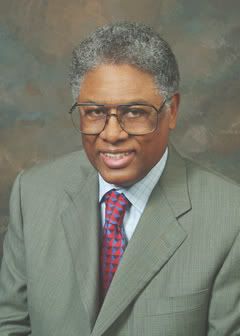 |
|
|
When a 1942 Supreme Court decision that most people never heard of makes the front page of the New York Times in 2012, you know that something unusual is going on. What makes that 1942 case — Wickard v. Filburn — important today is that it stretched the federal government's power so far that the Obama administration is using it as an argument to claim before today's Supreme Court that it has the legal authority to impose ObamaCare mandates on individuals. Roscoe Filburn was an Ohio farmer who grew some wheat to feed his family and some farm animals. But the U.S. Department of Agriculture fined him for growing more wheat than he was allowed to grow under the Agricultural Adjustment Act of 1938, which was passed under Congress' power to regulate interstate commerce. Filburn pointed out that his wheat wasn't sold, so that it didn't enter any commerce, interstate or otherwise. Therefore the federal government had no right to tell him how much wheat he grew on his own farm, and which never left his farm. The Tenth Amendment to the Constitution says that all powers not explicitly given to the federal government belong to the states or to the people. So you might think that Filburn was right. But the Supreme Court said otherwise. Even though the wheat on Filburn's farm never entered the market, just the fact that "it supplies a need of the man who grew it which would otherwise be reflected by purchases in the open market" meant that it affected interstate commerce. So did the fact that the home-grown wheat could potentially enter the market. The implications of this kind of reasoning reached far beyond farmers and wheat. Once it was established that the federal government could regulate not only interstate commerce itself, but anything with any potential effect on interstate commerce, the Tenth Amendment's limitations on the powers of the federal government virtually disappeared. Over the years, "interstate commerce" became magic words to justify almost any expansion of the federal government's power, in defiance of the Tenth Amendment. That is what the Obama administration is depending on to get today's Supreme Court to uphold its power to tell people that they have to buy the particular health insurance specified by the federal government. There was consternation in 1995 when the Supreme Court ruled that carrying a gun near a school was not interstate commerce. That conclusion might seem like only common sense to most people, but it was a close 5 to 4 decision, and it sparked outrage when the phrase "interstate commerce" failed to work its magic in justifying an expansion of the federal government's power. The 1995 case involved a federal law forbidding anyone from carrying a gun near a school. The states all had the right to pass such laws, and most did, but the issue was whether the federal government could pass such a law under its power to regulate interstate commerce. The underlying argument was similar to that in the 1942 case of Wickard v. Filburn: School violence can affect education, which can affect productivity, which can affect interstate commerce. Since virtually everything affects virtually everything else, however remotely, "interstate commerce" can justify virtually any expansion of government power, by this kind of sophistry. The principle that the legal authority to regulate X implies the authority to regulate anything that can affect X is a huge and dangerous leap of logic, in a world where all sorts of things have some effect on all sorts of other things. As an example, take a law that liberals, conservatives and everybody else would agree is valid — namely, that cars have to stop at red lights. Local governments certainly have the right to pass such laws and to punish those who disobey them. No doubt people who are tired or drowsy are more likely to run through a red light than people who are rested and alert. But does that mean that local governments should have the power to order people when to go to bed and when to get up, because their tiredness can have an effect on the likelihood of their driving through a red light? The power to regulate indirect effects is not a slippery slope. It is the disastrous loss of freedom that lies at the bottom of a slippery slope. |
|
